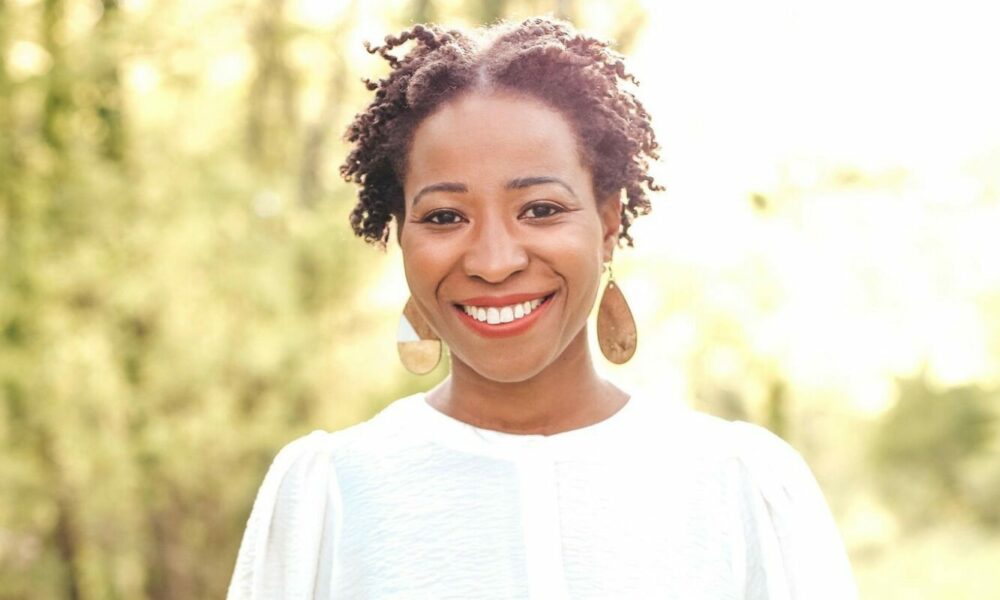

Today we’d like to introduce you to Ashley Brailsford.
Ashley, we appreciate you taking the time to share your story with us today. Where does your story begin?
I have always enjoyed the outdoors. Whether it was exploring camping with our all-Black Girl Scout troop, spending summers on my grandparents’ farms, running through sprinklers with our neighbors, summer camps in the mountains of NC, or adventuring in New Zealand through a summer exchange program, I loved the outdoors! It never occurred to me that I would one day couple my love of the outdoors with my career path.
You see, I went to college to be an educator. I started out as a Montessori teacher, then became an early childhood professor, and later on, a non-profit leader focused on program development for families. In the midst of growing my career, I continued spending time outdoors, eventually becoming a volunteer Outdoor Afro leader in Nashville.
Outdoor Afro is an organization dedicated to inspiring Black connections and leadership in the outdoors. Through that experience, I learned the power of Black stories connected to nature and how they serve as an opportunity to see ourselves in the outdoors and reconnect us to nature.
As I continued to lead outdoor events in 2020, like many folks, I was also experiencing a personal and professional transformation. Shortly after the pandemic began, I like to say I was liberated from my job as a program director, and this gave me the opportunity to pause and reflect deeply on what I wanted to do next. I knew that whatever it was it had to center JOY.
During this period my son, who was in kindergarten, was no longer going to school, like many other children across the country. I used this time of freedom as an opportunity to use the outdoors as our classroom. I realized his questions served as our foundation for learning which I could build upon through books, art, podcasts, experiments, and other creative projects.
As summer came to an end, I embraced that I was enjoying our outdoor learning experiences and wanted him to continue to experience learning through nature, so I started looking into nature-based education programs. I quickly, but not surprisingly, realized how white these spaces were, both in the people who were leading these programs as well as the curriculum that was being delivered. I wanted my child to have nature-based experiences but ones in which he could see himself and that were grounded in the stories and people of our community.
As it turns out, I had already been creating a foundation for the work I would do next. We had been volunteering at a community garden/urban farm that is owned by a Black woman, Ms. Pearl. I learned about other farmers she was connected to such as Ms.Cynthia, a former trauma nurse, turned poultry farmer. After visiting with Ms.Cynthia at her farm, I shared the idea of inviting other families and creating a learning experience. I invited some families who I knew were homeschooling and looking for community and as we say, the rest is history.
That one experience turned into a 6-week series in the spring called Gardening for Food Justice at the community garden. Then, in the fall of 2021, I created a series called Skills for Liberation in which we explored what is often referred to as “wilderness skills” but are really just skills many of our ancestors had to know in order to live and thrive (plant medicine, foraging, building fires, navigating with the stars, etc.).
Since then, I have created a Creative Arts in Nature series to explore different types of art and their connections to nature such as drumming, photography, printmaking, etc. All of these experiences are led by Black and Brown people in the Nashville community as well as our attending parents to honor their knowledge and gifts.
The goal of the programming I have created is really to challenge what counts as nature and yes, to rethink outside, including how we engage with the outdoors and who gets to engage in the outdoors. It is not always a kayak or a hike that is appealing but rather stories, a sense of community, the arts, and joy are also central to a lot of people’s engagement in the outdoors; hence why I eventually named the business Unearthing Joy.
I get asked all the time if I am going to expand the programming that I offer and my response is usually no because my goal was never to be the one leading programming in neighborhoods across the city or country but rather to spark conversations about what culturally-inclusive nature programming can look like in YOUR community, and encourage folx to co-create their own programs WITH their neighbors. Through workshops and consulting I get the opportunity to share the strategies I use to create my community-based programs that can be applied in your own community. These strategies are grounded in multicultural education and culturally responsive frameworks from the education field.
The majority of the work for Unearthing Joy is collaborating with nature-connected organizations such as garden education programs, early childhood organizations, funders, schools, and parks and recreation, to rethink their programming efforts so they are more culturally inclusive of the past and present stories, roles, and contributions of Indigenous, Black and other people of the global majority.
And I want to be clear that culturally-inclusive programs are necessary, regardless of the demographics you work with, in the effort to build understanding that our stories not only matter but have greatly shaped and contributed to the work connected to the outdoors. These stories and our knowledge hold great promise for providing solutions to the greatest injustices we are all facing related to climate, environment, health, and food systems.
Our primary goal at Unearthing Joy is to honor culture and explore justice to unearth joy. To learn more about how you can transform your curriculum and programs to be more culturally inclusive, contact us for our signature workshops for your organization and be on the lookout for our upcoming series Creating Culturally Inclusive Nature Programs on our website, unearthingjoytogether.com or follow us on Instagram or Facebook @unearthingjoytogether.
Can you talk to us a bit about the challenges and lessons you’ve learned along the way? Looking back would you say it’s been easy or smooth in retrospect?
It has been relatively smooth so far because I did not seek to spend my time “selling” people on the business, rather I just wanted to focus on doing the work and network with people I already knew who would refer me to other people to cut down on wasting time convincing people about my work.
Probably the biggest struggle has been finding partners or sponsors wanting to invest time or resources in the in-person programs for families. A lot of folks I work with are smaller community-based non-profits so budgets are pretty tight.
My hope is to attract sponsors who are aligned with our mission and want to see more culturally inclusive nature0based programs around Nashville and in our parks.
Thanks for sharing that. So, maybe next you can tell us a bit more about your work?
I would say that I am most proud of getting to work on really cool projects with organizations and families that truly understand the value of the programs and workshops. I learn just as much from them as I hope they learn from me.
I think what sets Unearthing Joy apart from other nature or outdoor organizations is that we are focused on supporting community-based organizations to develop programs that are culturally relevant to the lives of the community they are serving by engaging the community in the process of co-creation.
I think the other thing that makes us unique is that we focus on getting the family unit outside not just the adults or not just the children, but both children and adults together which has been proven to have a longer-term impact regarding engagement with the outdoors.
What was your favorite childhood memory?
This is a great question I often ask in my workshops, but related to the outdoors.
My favorite memory is visiting my maternal grandparent’s farm in the summers and thinking I was bored, but I look back and really appreciate the time to wander around outside picking plums from the tree in the front yard and sitting under the tree on the weekend helping my grandmother prep food for canning and freezing such as peaches and corn.
Pricing:
- $347 for the fall Gardening for Food Justice session per family on Wednesdays.
- workshops for organizations vary.
Contact Info:
- Website: unearthingjoytogether.com
- Instagram: @unearthingjoytogether
- Facebook: @unearthingjoytogether
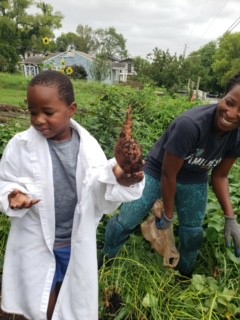
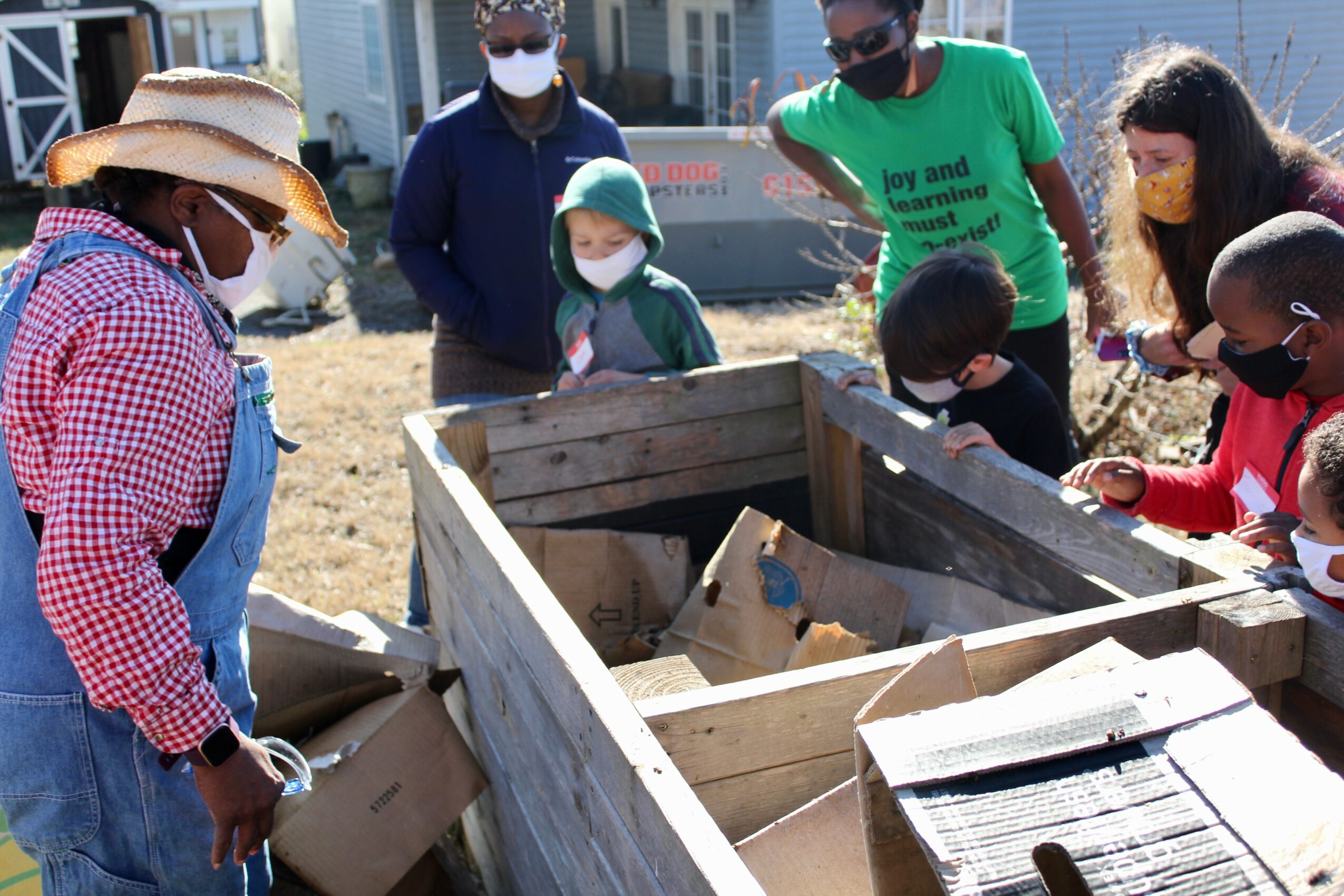
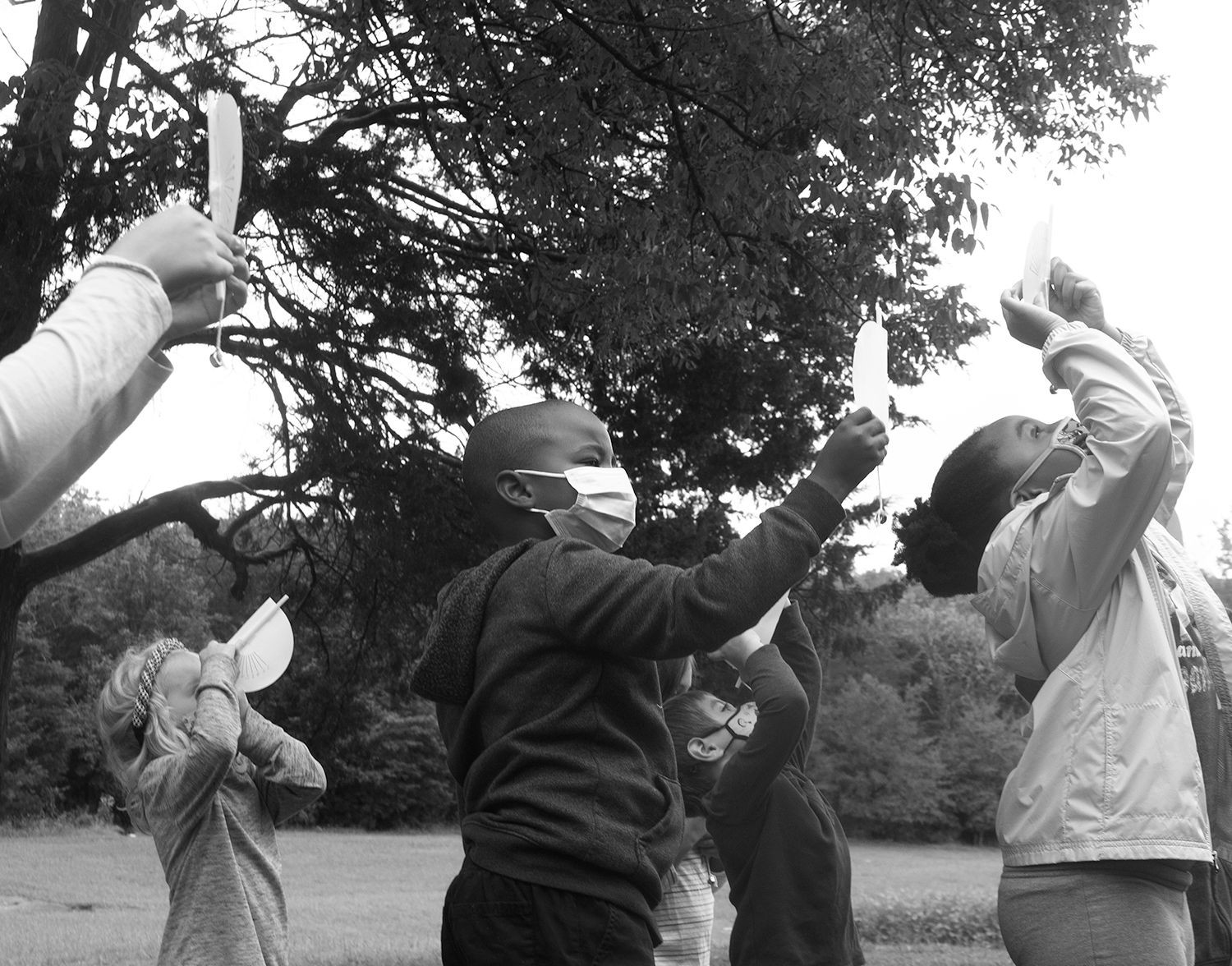
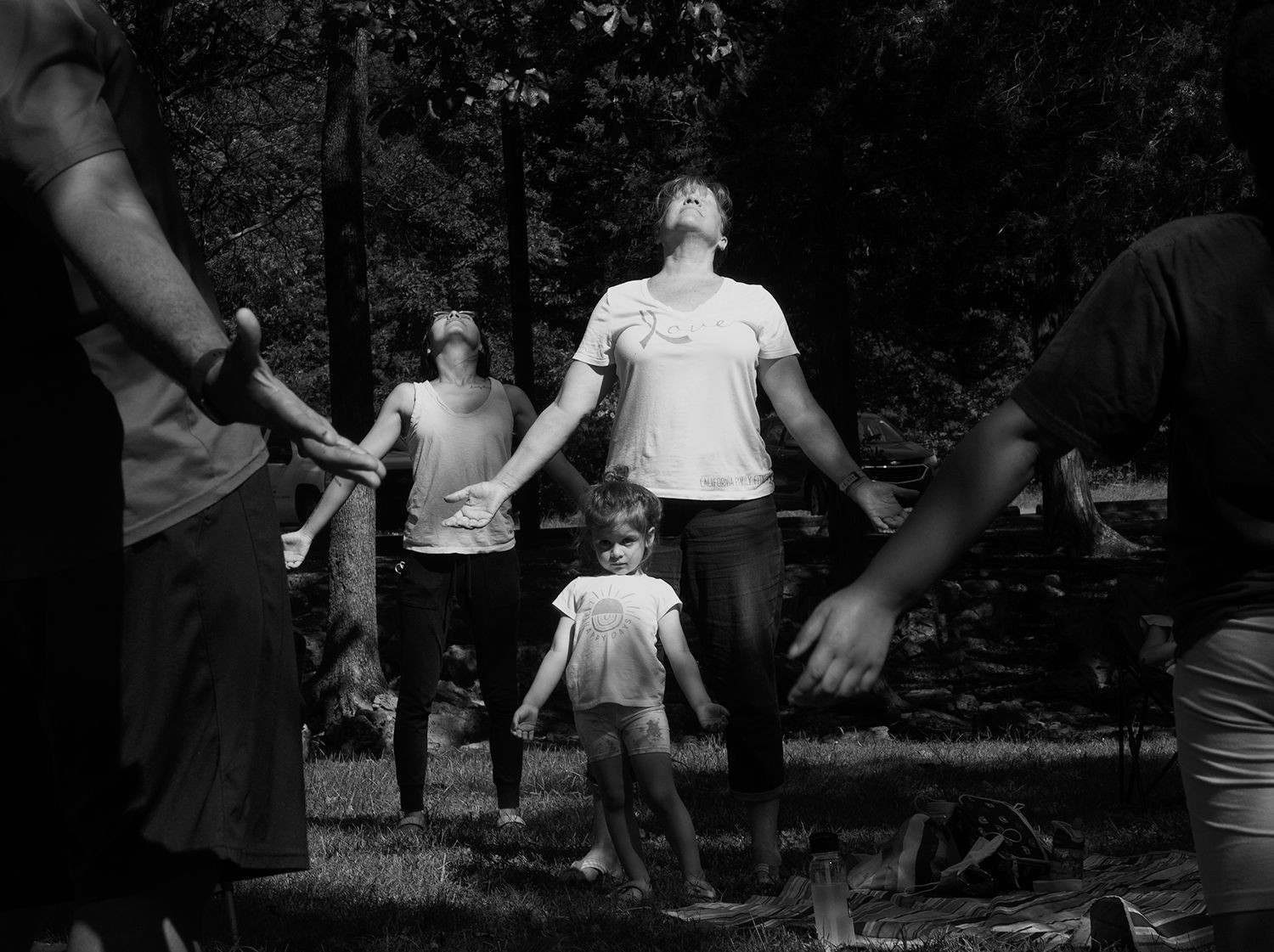
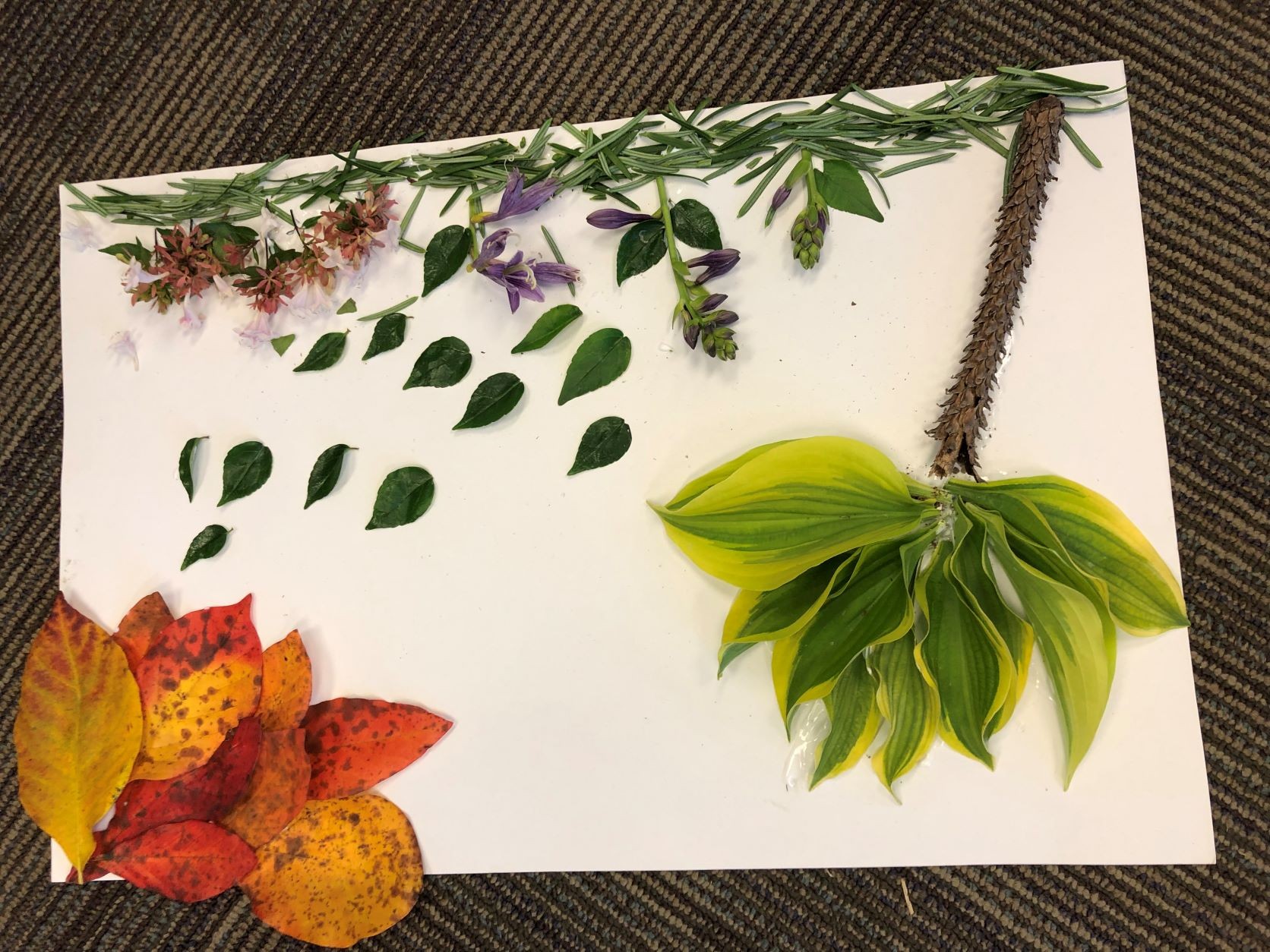
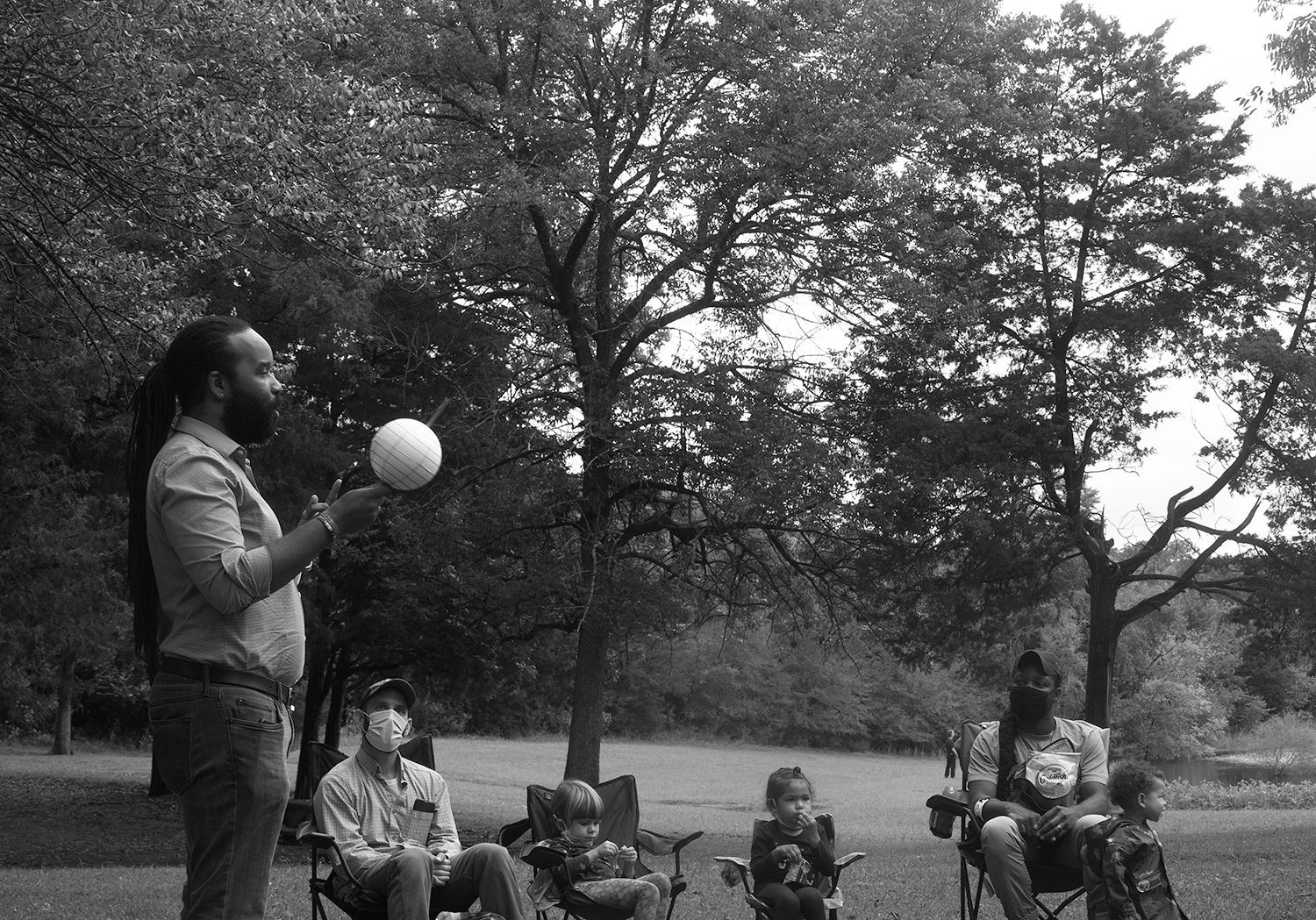 Image Credits
Image Credits
Joon Powell and Mona Whitworth Wiggins












